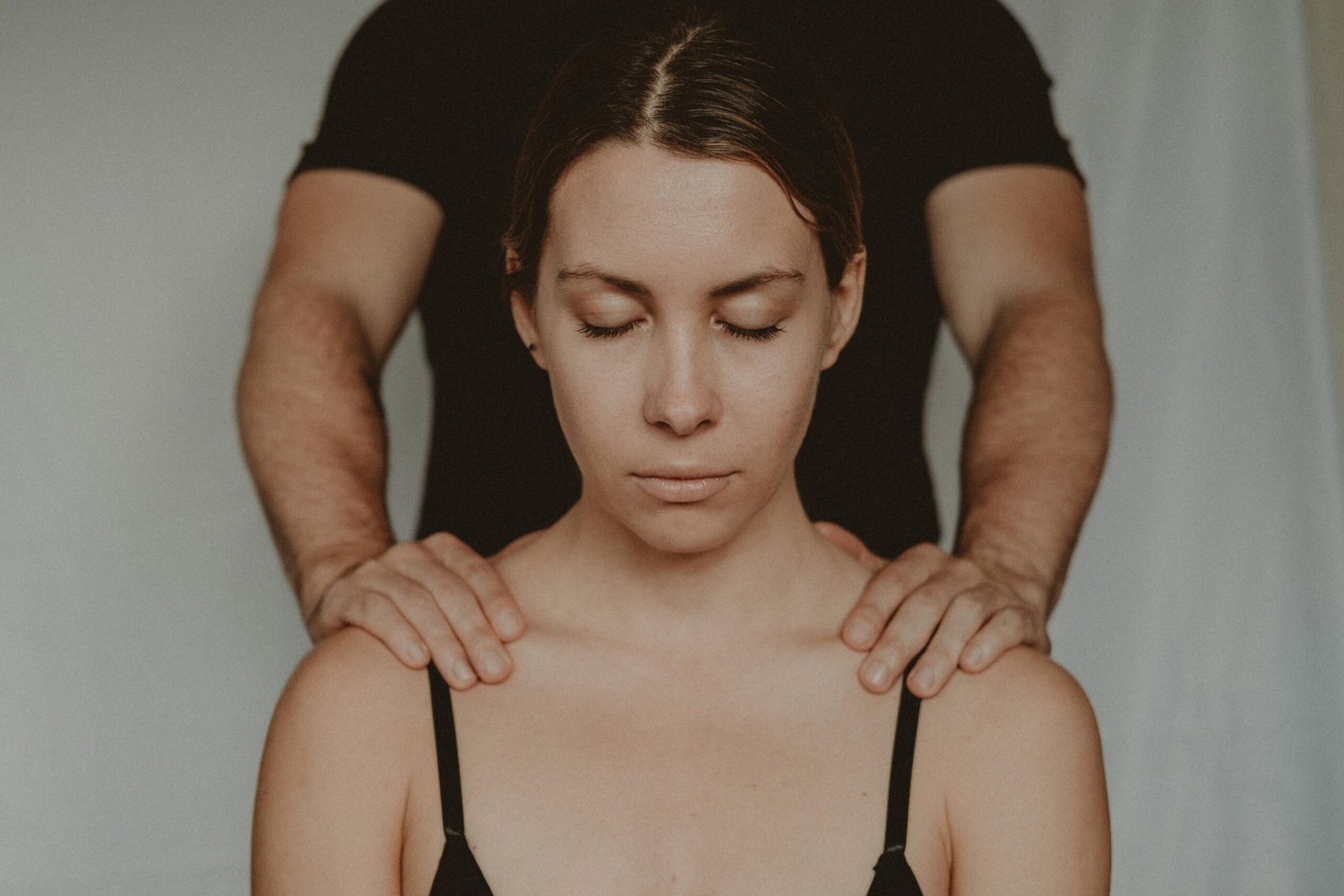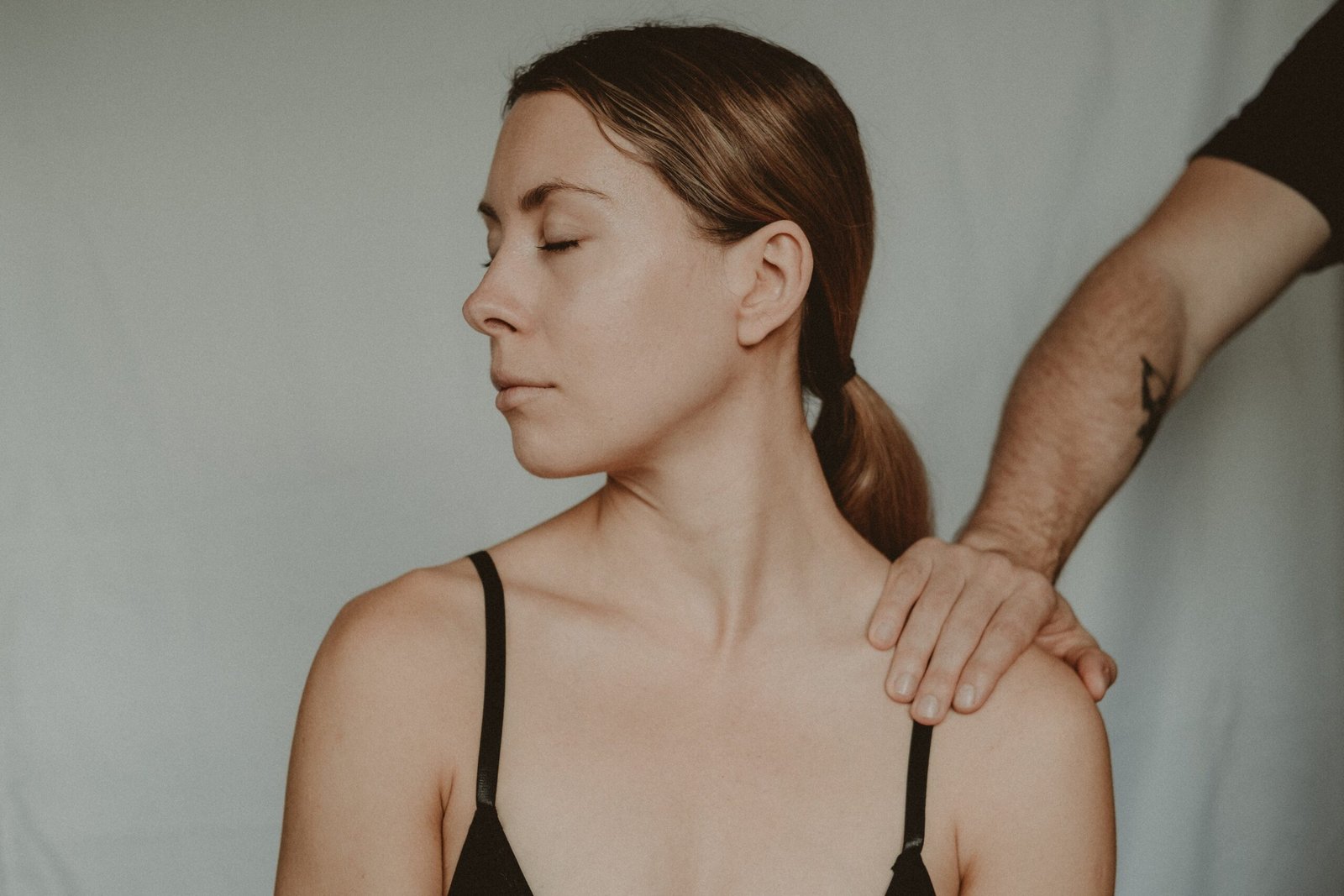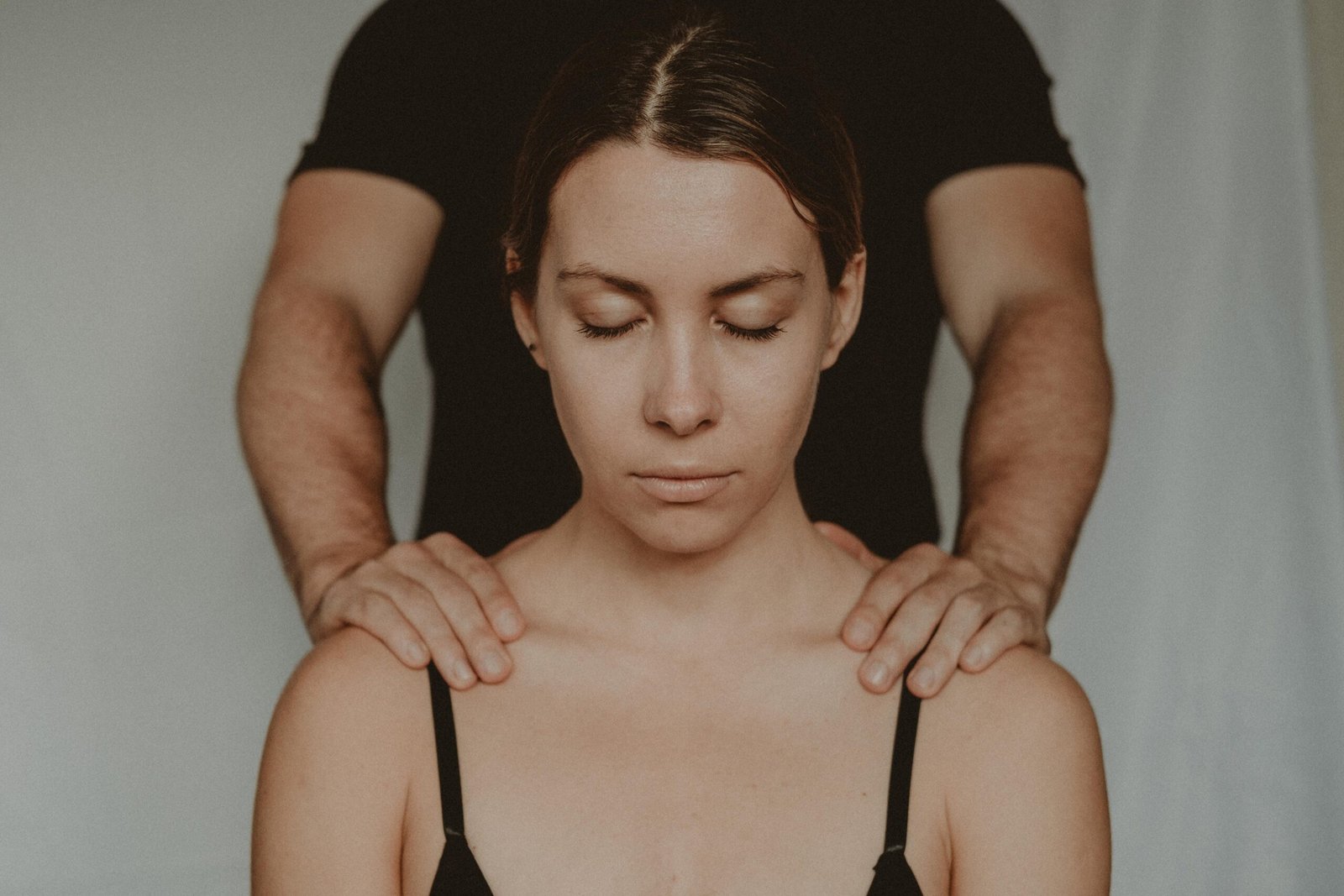
Are you tired of tossing and turning all night, unable to find a comfortable position for your shoulder? If so, you’re not alone. Many people experience sharp or dull shoulder pain when lying on it, causing disrupted sleep and discomfort. There are several potential causes for this recurring issue, ranging from underlying medical conditions to poor sleeping habits. Understanding these causes can help you identify the source of your discomfort and take steps towards finding relief.
Causes of Shoulder Pain When Lying on It
If you have ever experienced shoulder pain when lying on it, you know how frustrating and uncomfortable it can be. There are several potential causes for this type of pain, ranging from simple issues like incorrect pillow support to more serious conditions such as arthritis or pinched nerves. In this article, we will explore the various causes of shoulder pain when lying on it, providing you with a comprehensive understanding of these conditions and how they may be affecting you.

Incorrect Pillow Support
One common cause of shoulder pain when lying on it is improper pillow support. Your pillow plays a significant role in supporting your head and neck alignment during sleep. When the pillow is not adequately supportive, it can lead to misalignment of the shoulder and neck, causing strain and discomfort. There are a few factors related to pillow support that can contribute to shoulder pain:
Inadequate Pillow Height
If your pillow is either too high or too low, it can lead to shoulder pain. When the pillow is too high, it can force your shoulder into an unnatural position, causing strain on the muscles and ligaments. Conversely, if the pillow is too low, your shoulder may sink into the mattress, creating discomfort and potential misalignment.
Inappropriate Pillow Material
The material of your pillow can also impact your shoulder’s comfort and alignment. Pillows made of materials that are too firm or too soft may not provide the necessary support. A pillow that is too firm can push against your shoulder, creating pressure points and pain. On the other hand, a pillow that is too soft may not offer enough support, leading to strain and discomfort.
Improper Pillow Positioning
The way you position your pillow can also contribute to shoulder pain. If your pillow is positioned too close or too far away from your head, it can lead to neck and shoulder misalignment, resulting in pain. It is essential to find a comfortable and supportive position for your pillow that allows for proper alignment of your shoulder and neck.
Rotator Cuff Injuries
Another common cause of shoulder pain when lying on it is a rotator cuff injury. The rotator cuff is a group of muscles and tendons that surround the shoulder joint, providing stability and allowing for a wide range of motion. When the rotator cuff becomes damaged or injured, it can lead to pain and limited mobility. There are several types of rotator cuff injuries that can cause shoulder pain:
Partial or Full Tear in the Rotator Cuff
A partial or full tear in the rotator cuff can result from trauma or wear and tear over time. These tears can cause significant pain, especially when lying on the affected shoulder. If you have a rotator cuff tear, you may experience weakness, limited range of motion, and difficulty sleeping comfortably on that side.
Tendinitis or Tendon Tears
Tendinitis refers to the inflammation of the tendons that attach the muscle to the bone. Overuse or repetitive movements, such as those often associated with sports or manual labor, can lead to tendinitis in the shoulder. In some cases, tendinitis can progress to tendon tears, causing severe pain when lying on the affected side.
Shoulder Bursitis
Bursitis is the inflammation of the bursa, a small fluid-filled sac that cushions the bones, tendons, and muscles around a joint. Shoulder bursitis can occur due to overuse or repetitive movements, trauma, excessive pressure or friction, or infection. When the bursa in the shoulder becomes inflamed, it can cause pain, especially when lying on it.
Rotator Cuff Impingement
Rotator cuff impingement occurs when the tendons of the rotator cuff become compressed between the shoulder blade and the head of the humerus bone. This compression can cause pain when lying on the affected shoulder and may lead to further injuries if left untreated.

Shoulder Impingement Syndrome
Shoulder impingement syndrome is a condition characterized by the compression of structures in the shoulder, leading to pain and limited mobility. There are several factors that can contribute to shoulder impingement and, subsequently, shoulder pain when lying on it:
Overuse or Repetitive Movements
Engaging in activities that require repetitive shoulder movements, such as painting, throwing, or swimming, can put excessive strain on the shoulder joint, leading to impingement and subsequent pain.
Shoulder Instability
Shoulder instability occurs when the ball and socket joint of the shoulder is loose or slips out of place. This instability can lead to impingement of the surrounding structures, causing pain when lying on the affected shoulder.
Muscle Weakness or Imbalances
Weak or imbalanced muscles around the shoulder joint can contribute to shoulder impingement. When certain muscles are weak, other muscles may overcompensate, leading to altered movement patterns and potential impingement.
Structural Abnormalities
Certain structural abnormalities, such as a bone spur or a curved acromion (the bony process on the scapula), can increase the risk of impingement and subsequent shoulder pain when lying on it.
Frozen Shoulder
Frozen shoulder, also known as adhesive capsulitis, is a condition characterized by inflammation and thickening of the shoulder joint capsule. This inflammation leads to restricted movement and stiffness, making it painful to lie on the affected shoulder. Frozen shoulder typically progresses through three phases: freezing, frozen, and thawing.
During the freezing phase, pain gradually worsens, and shoulder movement becomes increasingly limited. This phase can last anywhere from 6 weeks to 9 months. In the frozen phase, pain may subside, but the shoulder remains stiff and movement is significantly restricted. Finally, in the thawing phase, shoulder mobility gradually improves, and pain starts to decrease.

Tendonitis
Tendonitis refers to the inflammation of the tendons in the shoulder. It can cause significant pain when lying on the affected shoulder, especially if the inflammation is due to overuse or repetitive movements. Tendonitis is commonly seen in individuals who engage in activities such as tennis, golf, or weightlifting. It can also occur with age-related degeneration of the tendons.
Bursitis
Bursitis is the inflammation of the bursa, a small fluid-filled sac that cushions the bones, tendons, and muscles in the shoulder joint. Bursitis can result in shoulder pain, particularly when lying on it. Excessive pressure or friction, direct injury or trauma, and infection can all lead to bursitis in the shoulder.
Arthritis
Several types of arthritis can cause shoulder pain when lying on it. The most common types include osteoarthritis, rheumatoid arthritis, post-traumatic arthritis, and inflammatory arthritis:
Osteoarthritis
Osteoarthritis is a degenerative joint disease characterized by the breakdown of cartilage in the joints. When it affects the shoulder, it can cause pain, stiffness, and reduced mobility, making it uncomfortable to lie on the affected side.
Rheumatoid Arthritis
Rheumatoid arthritis is an autoimmune disease that causes chronic inflammation in the joints, including those in the shoulder. The inflammation can lead to pain, swelling, and joint deformities, making it difficult to find a comfortable position when lying on the affected shoulder.
Post-Traumatic Arthritis
Post-traumatic arthritis refers to arthritis that develops following an injury or trauma to the shoulder joint. This type of arthritis can cause pain and stiffness when lying on the affected shoulder, especially if the injury has resulted in long-term joint damage.
Inflammatory Arthritis
Inflammatory arthritis conditions, such as psoriatic arthritis or ankylosing spondylitis, can also affect the shoulder joint and lead to pain when lying on it. These conditions are characterized by chronic inflammation in the joints, which can progressively worsen over time.
Pinched Nerves
Pinched nerves in the shoulder can cause significant pain when lying on it. There are several conditions that can lead to pinched nerves in the shoulder:
Cervical Radiculopathy
Cervical radiculopathy refers to a pinched nerve in the neck that causes pain to radiate down the shoulder and arm. When lying on the affected side, the compression of the nerve can exacerbate the pain.
Brachial Plexus Injury
The brachial plexus is a network of nerves that originates from the neck and supplies the shoulder, arm, and hand. An injury to the brachial plexus can cause pain and weakness in the shoulder, making it uncomfortable to lie on.
Nerve Compression or Entrapment
Other factors, such as muscle tightness or anatomical abnormalities, can lead to nerve compression or entrapment in the shoulder, resulting in pain when lying on it.
Thoracic Outlet Syndrome
Thoracic outlet syndrome occurs when the nerves and blood vessels in the shoulder area become compressed or irritated. This compression can cause pain and discomfort, particularly when lying on the affected shoulder. Thoracic outlet syndrome can result from various factors, including poor posture, repetitive motions, trauma, or anatomical abnormalities.
Shoulder Instability
Shoulder instability refers to a condition in which the shoulder joint is more prone to dislocation or subluxation (partial dislocation). The instability can cause pain when lying on the affected side. There are different factors that can contribute to shoulder instability:
Dislocated Shoulder
A dislocated shoulder occurs when the ball and socket joint of the shoulder is completely displaced. The dislocation can be caused by a traumatic injury, and lying on the affected side can be extremely painful.
Recurrent Shoulder Dislocation
Some individuals experience recurrent shoulder dislocations, where the shoulder joint repeatedly moves out of its socket. This instability can lead to chronic pain, making it challenging to find a comfortable position when lying on the affected shoulder.
Shoulder Subluxation
Shoulder subluxation refers to the partial dislocation of the shoulder joint. It can cause pain and discomfort, especially when lying on the affected side.
Muscle Weakness or Imbalances
Weak or imbalanced muscles around the shoulder joint can contribute to shoulder instability. When the muscles are unable to adequately support the joint, it can lead to instability and subsequent pain when lying on the affected shoulder.
In conclusion, shoulder pain when lying on it can stem from various causes, ranging from incorrect pillow support to more severe conditions such as arthritis or pinched nerves. Proper diagnosis and treatment are crucial to alleviate the discomfort and improve your sleep quality. If you experience persistent shoulder pain when lying on it, it is recommended to consult with a healthcare professional for an accurate diagnosis and tailored treatment plan.





